5 Plants That Keep Geese Out of Your Yard, According to Experts
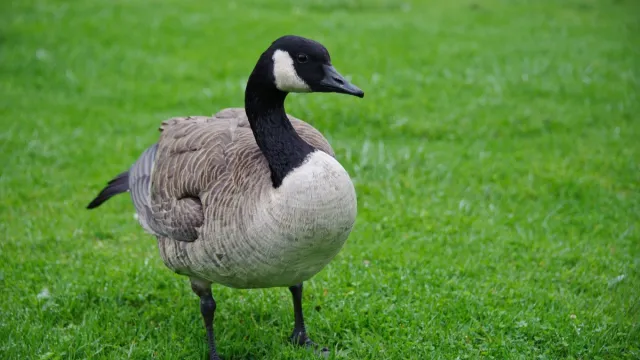
If you’re an avid birdwatcher, chances are you don’t mind having a few geese in your yard. However for many Americans, the booming geese population—specifically Canada geese—is troublesome, as they can crowd your property and pose both health and environmental concerns. Decoys, dogs, and fences can be helpful for warding off or scaring geese, but experts say there are also several plants that can keep them out of your yard.
“While some might find geese beautiful, they can cause quite a mess,” Brian Clayton, CEO and co-founder at GreenPal, tells Best Life. “Think about it: Geese can feed on your carefully maintained grass, leaving large bare spots. They also tend to be quite noisy and can become aggressive, especially during nesting season. And as if that’s not enough, their droppings can be both unsightly and unsanitary.”
According to Clayton, the key is to understand geese’s behavior in order to “create a yard that’s beautiful for you, but not so inviting for geese.” This can be tricky to accomplish, since geese are highly adaptable. But if these birds love your yard, several plants can deter them—without causing them any harm.
Read on for five plants and shrubs that keep geese at bay.
RELATED: 6 Plants That Keep Deer Out of Your Yard, According to Experts.
1
Tall grasses
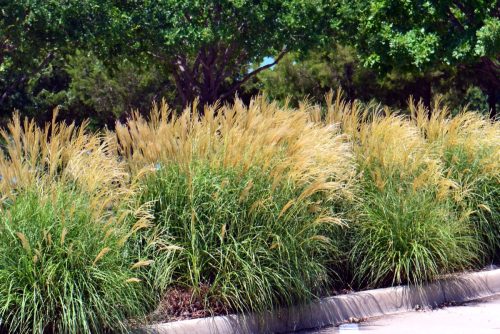
The most commonly recommended plant to keep geese away is something you’re already growing: grass. Planting some different varieties along the perimeter of your yard—or going for shrubs, if you prefer—can be a good defensive tactic.
“Planting tall grasses and shrubs around the perimeter of your yard can create barriers that make geese feel exposed, uncomfortable, and vulnerable to predators,” Ward Dilmore, founder at Petrus Landscaping, says. “Geese prefer open spaces where they have a clear view of any dangers. Taller shrubs and grasses can disrupt this line of sight, making your yard less attractive to them.”
Clayton specifically recommends tall grasses like Miscanthus (silvergrass), which will “obstruct geese’s line of sight and make them feel unsafe.”
He adds, “Geese like to see their surroundings to spot predators, and tall grasses can deter them from settling in.”
According to the University of Texas Austin, growing your lawn to about three inches in height is also helpful, as Canada geese much prefer short grass. If your yard has Kentucky bluegrass, which the Humane Society of the United States calls “goose candy,” that should be replaced immediately with another grass. The organization suggests tall fescue as a good option.
RELATED: 5 Plants That Will Keep Mosquitoes Out of Your Yard, According to Pest Experts.
2
Aromatic plants
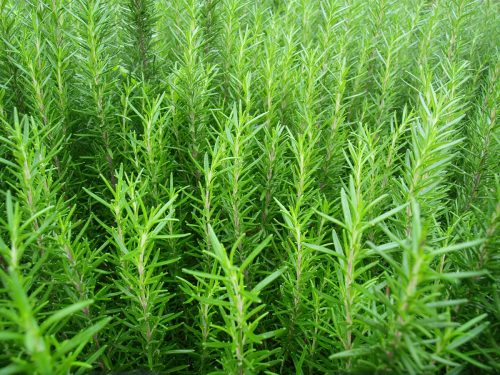
You can also try aromatic plants like citronella and lavender, Clayton says, both of which have “strong scents” that “might be unpleasant to geese, keeping them at bay.”
Dilmore suggests rosemary, which many animals dislike, as well as mint, to “discourage geese from lingering.”
“Geese are creatures of habit and comfort. By making your yard less accommodating to their preferences, you create an environment that’s not appealing to them,” Clayton explains. “It’s not about harming the geese, but rather guiding them to find a more suitable habitat.”
RELATED: 5 Scents That Attract Raccoons to Your Yard, Experts Say.
3
Dense shrubs and thickets
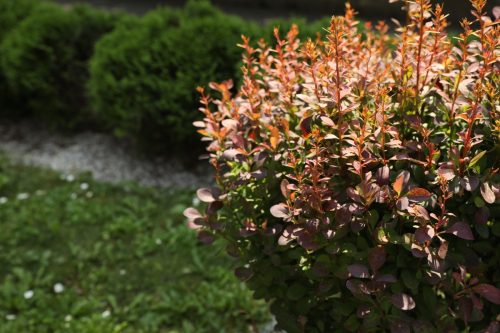
Because geese generally prefer open spaces, another defensive tactic you can use is planting dense shrubs and thickets, Clayton says.
This can “make it challenging for geese to navigate through your yard,” he explains, recommending juniper or holly bushes to signal your yard is “not geese-friendly.”
As another option, Dilmore suggests barberry, which has thorny branches that create a troublesome obstacle for geese.
“This can discourage them from landing or walking around your yard,” he says.
4
Wildflowers
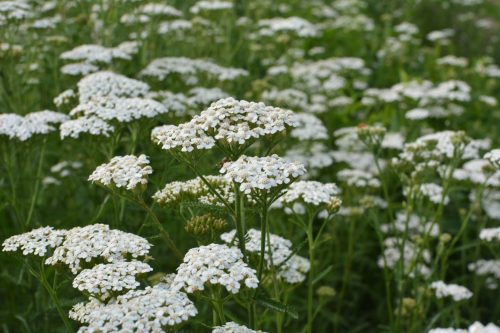
Wildflowers are a more colorful option for warding off geese. According to Rutgers University, you can introduce a mix of perennial wildflowers, which grow tall and are less attractive to geese than “the well-manicured and fertilized lawn” you may otherwise maintain.
According to the Indiana Department of Natural Resources, wildflowers (forbs) remain tall throughout the winter months, which makes them perfect deterrents for geese, especially if you live near water and plant them as a buffer strip. (Geese particularly like to set up shop near water bodies, since they eat aquatic vegetation, per Rutgers.)
Dilmore specifically recommends planting yarrow, which has an added benefit of smelling “pungent” to geese, and may prevent them from lingering.
For more home and garden tips sent directly to your inbox, sign up for our daily newsletter.
5
Groundcover
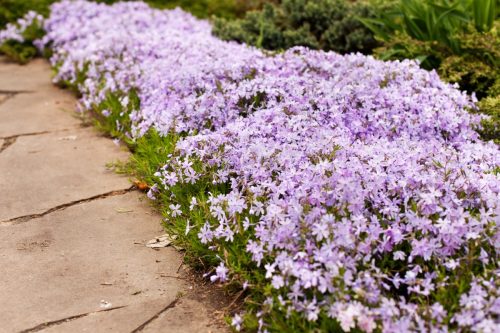
If you’re not able to plant taller vegetation, Rutgers recommends going for native groundcover instead, namely shrubby fivefingers (Sibbaldiopsis tridentata), creeping phlox (Phlox subulata), or wild blue phlox (P. divaricata).
Planting these instead of mowed turf “will reduce the quality of the landscape as a food resource” for geese, according to the university.